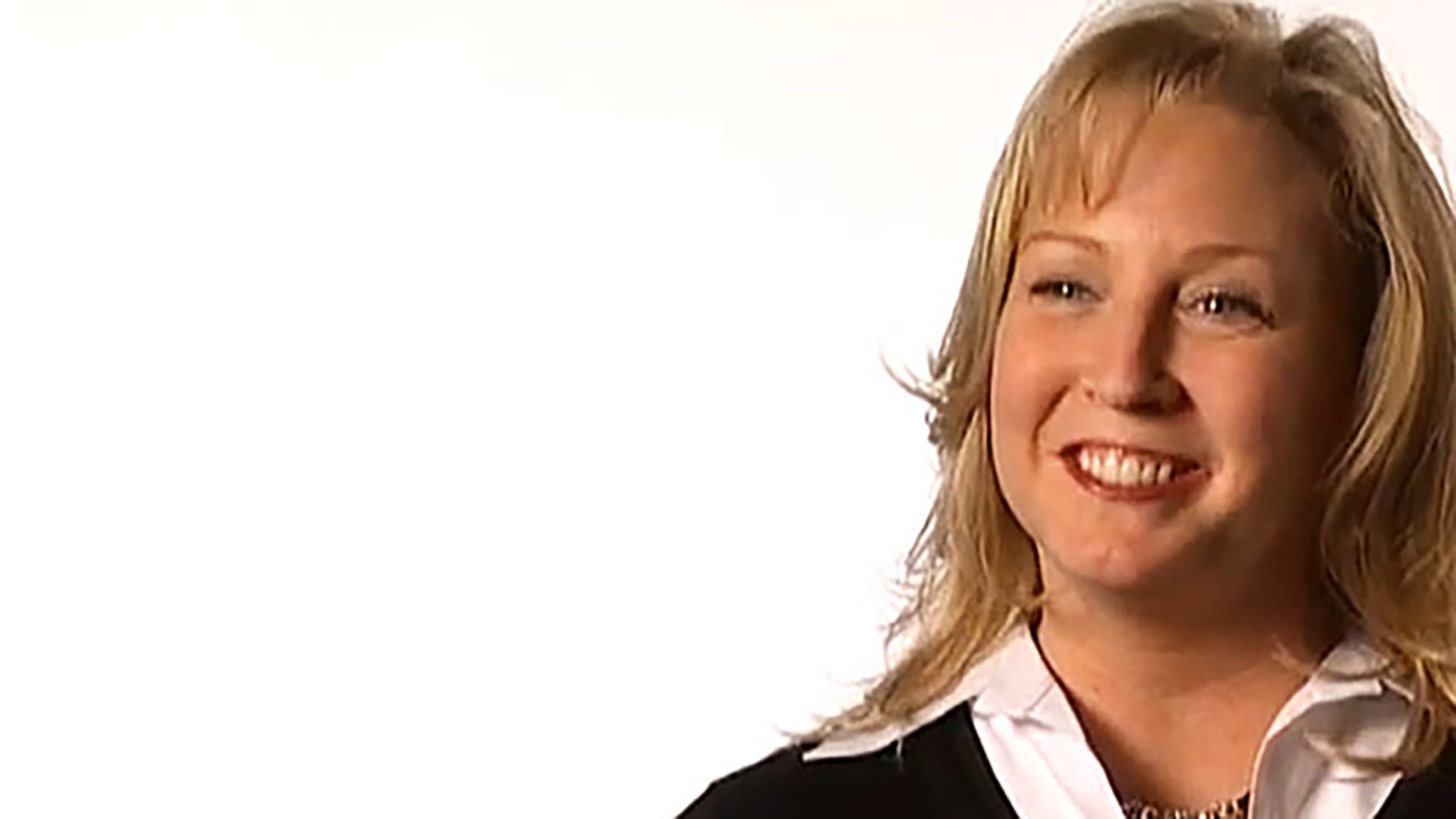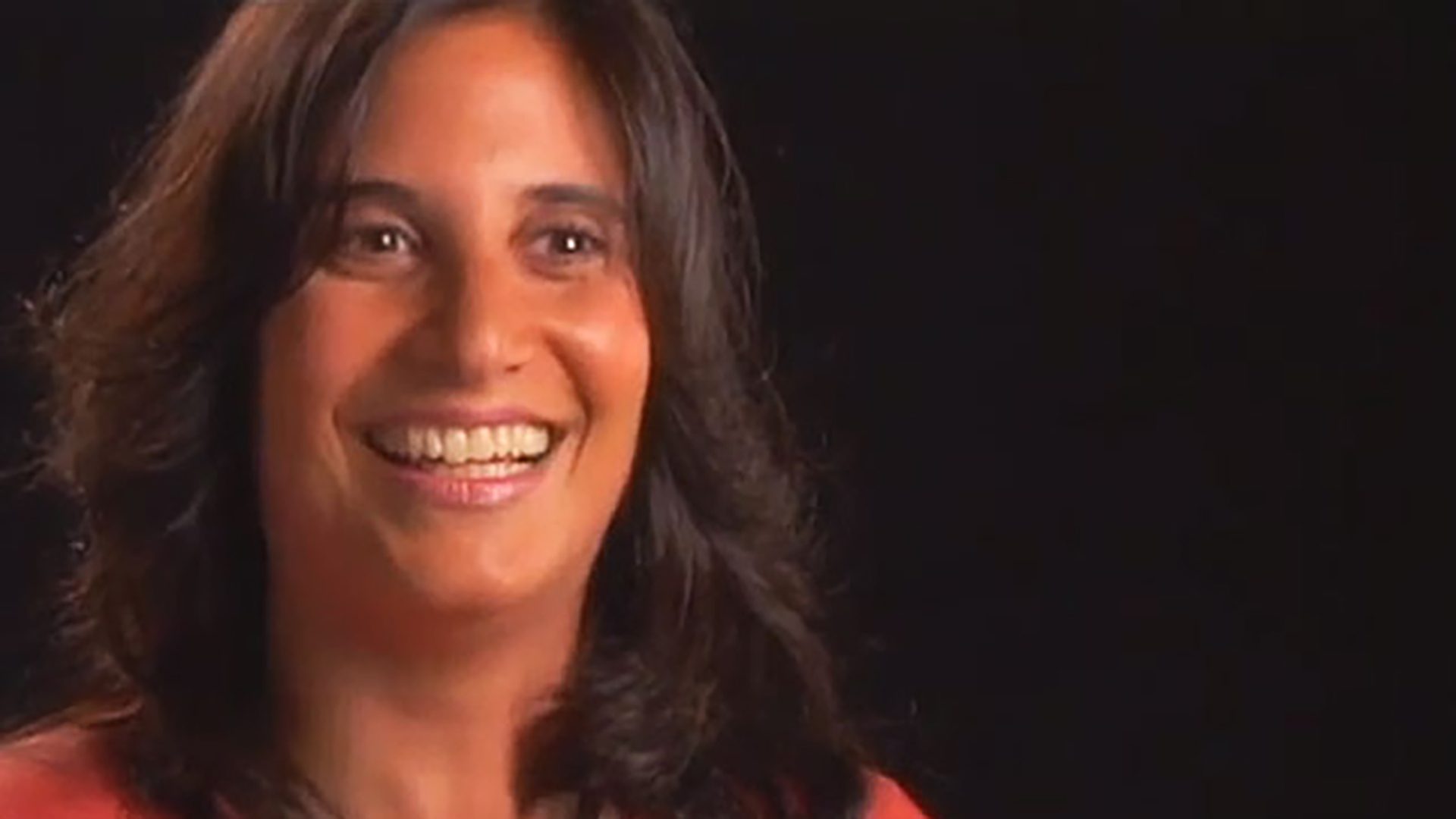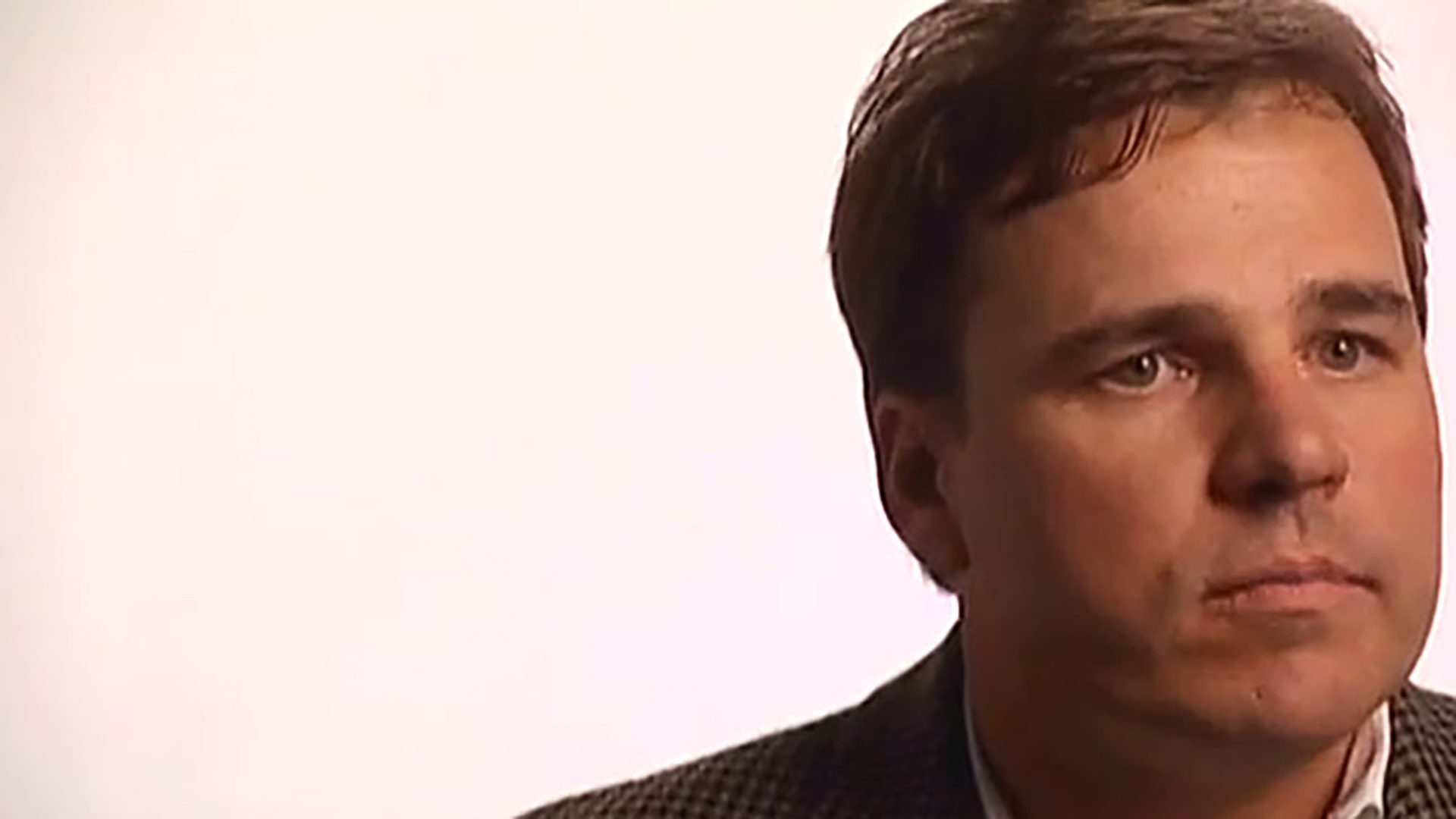Survivor Interview – Kristi E.
Kristi is a pheochromocytoma (adrenal gland tumor) survivor. She talks about premature menopause and infertility, thyroid changes, and polypharmacy.

I’m a 14-year survivor of pheochromocytoma, since October of 1989. They think that I could have possibly been born with the pheos in my body. It was very slow-growing. I remember symptoms back in junior high and high school. My tumors actually produced adrenaline, so they just made me vacuum at three o’clock in the morning. I was always very hyper, and then I started to get pounding, pounding headaches. I would feel faint. My friends used to say that I turned gray.
In ’86, ’87, ’88 there’s many doctor reports of, “Kristi came in here today with many symptoms.” They kept telling me nothing was wrong. My tumors would act up, there would be an episode. I’d go to the doctor and I would have nothing. I looked fine. I felt fine at that time. They sent me to a cardiologist, who kind of laughed me out. I was 21, probably. The cardiologist just laughed, saying, “You are a healthy specimen.”
Finally, my family doctor put me on the treadmill for a stress test and my blood pressure went to 230 over 190, something astronomical. They finally saw an episode happen. So they sent me to a specialist. The specialist said, “There’s a one in a ten million chance that you have this disease: pheochromocytoma. Let’s do a 24-hour urine test on you.” I think at the time it was a $50 urine test. The normal range is 50 to 500. Mine was in the thousands. So, big winner. I played the lottery. I still play the lottery now.
I’ve never been angry about it, I was actually so relieved when they found something. Even the name, pheochromocytoma. I was so happy it had a name. I could look it up. I had something I could fight, finally. I’ve had many issues since the end of my treatment that have taken years to discover, rectify, get on the proper medications but, all in all, it’s been very good.
Chemotherapy put me into premature menopause, which at the time wasn’t diagnosed, so I struggled for years with hot flashes and all the symptoms that go along with it. I found that treatment for premature menopause in a 30-some-odd-year-old is not widely known. So I struggle with that regularly. They told me during treatment that it was possible that I would be infertile, which at the time was fine, because I just wanted to live. I never associated infertile with menopause. I didn’t know all the symptoms that come with menopause, like turning into a crazy woman.
My thyroid went bad. I went to the doctor many times for different symptoms—dry skin, weight gain—and they just kind of pooh-poohed it. I believe I struggled with it for probably five years. When they finally did the thyroid test, it was in fact bad. Hypothyroid, the bad kind that makes you fat; not hyper, the one that makes you skinny. So they put me on medication and now it’s fine. But it fluctuates. You change your medication. It’s still something you deal with yearly. I wish that somebody could have told me that it was a possibility, possibly got me on medication before I got fat. Maybe done something sooner instead of dealing with the symptoms for so long.
I don’t get angry at the doctors, because they treated my disease, and they did a wonderful job, because it’s obviously gone. I do think that doctors don’t follow up with all the symptoms of the treatments for cancers. Maybe an oncologist’s job is just to treat the disease, and that’s what he should focus on, and then hand them off to somebody who spends an hour with you and says, “How do you really feel?” My oncologist used to always tell me, “You look great.” On the inside, I didn’t feel great. I was cured, but there were all these things that I felt were not right.
I’ve taken heartburn medicine all my life. I’m not a big pill taker. I hate it. But the Pepcid AC was getting a little expensive. The people at the Living Well After Cancer Program said, “Why don’t you have an upper endoscopy done just to see?” Sure enough, hiatal hernia, big muscle poking through my stomach, acid reflux, the whole thing. Never gonna go away. They did some biopsies of my esophagus to see if I had the beginning of Barrett’s syndrome, which is a predisposition to esophagus cancer, and I do. So it’s something I need to follow. They put me on Nexium and now I’m fine. Another pill to take every day for the rest of my life.
They’re not sure what caused the hernia. It could be stress. It could be from having acid reflux for so long. But it’s something that probably could have been checked out eight years ago and taken a little more seriously than chronic heartburn.
I tend to minimize my pain. Even when I was sick, I wasn’t vocal enough to say, “Look, this is bad.” Because you don’t know. If you don’t talk to people who have chronic heartburn, you don’t know that if you’re getting it every day, that’s not good.
Last year the doctor says, “Well, you need to have a mammogram.” I was shocked. She said that the radiation to my spine around the breast area predispositions me to breast cancer. That was news. But at least they’re checking now. I’ve had a baseline. Things crop up every day. They really do.
I had a DEXA scan done a year and a half ago, maybe two years, and it showed the beginning of osteoporosis. So I have a baseline now and they’re tracking it. I actually just had another one done, and it had improved a little, so that’s good. They recommended that I take my calcium supplements.
Calcium is the one pill that’s not in a prescription that I don’t take on a regular basis, because I’m a rebel with my pills. I read in my hypothyroidism book that calcium interferes with Synthroid. So what am I gonna do now? I take all my little pills in the morning, so I never take the calcium. I try to remember it at night sometimes. I do hit or miss it here and there, but that’s the other thing. I’m taking four pills a day. Does one counteract the other? Does one make one not as strong? You just kind of find out on your own by reading.
It’s very frustrating to find that I need four pills a day to regulate my body, and I’m 36 years old. I’m scared of the medication I’m on, because by the time I’m 50, I’m gonna be on it much longer. For instance, the hormone replacement therapy most people start at 50 or 60, I started at 32. I don’t know that they look at the long-term effects of taking medication. I ask my doctors, and they don’t know. Time will tell. All the time, up until lately, I would try to quit one of them just to see what will happen. I’m done doing that, because I found I need the medication. I’m better on it than I am off of it.
When the Living Well After Cancer Program interviewed me for the first time, Linda Jacobs asked me things that no doctor had ever asked me before. She said, “Do you have relationship issues?” At the time, I was in a terrible relationship and didn’t have the skills to get out. I still am trying to tie that together, but she said, “It’s directly affected by your cancer and the traumatic experience that you went through.” So I’m actually in counseling now, have been for quite some time, and we’re working through these issues. It’s the one thing I’ve changed. I’ve picked a nice guy for the first time in my life, and it’s wonderful.
I never thought long-term immediately after surviving cancer. I was just happy, and now I’m starting to think that I’m gonna live for a very, very long time, and I need to start getting my shit together. I gotta put more in my 401K, I gotta start planning for retirement. I don’t have any philosophy. I just am happy to be alive.
Up until just recently I didn’t even know that survivorship existed. The word didn’t mean anything to me. Well, it’s a great word. To me, it means everything that I’m going through after cancer that nobody ever talked about. The cancer and fighting it was one place. Survivorship is the next place that nobody told me about. They tried to put me back into the, “Okay, here’s your life. Go back to it.” It was never the same. It’s always gonna be different.
To talk to other people that have cancer, that’s when you really notice that we are different in a good way. I feel that my insides are old, and I’m not talking about the menopause and the thyroid and all that. I don’t think “wise” is the right word, but I went through something that changed the way I look at everything forever. It was a very traumatic event that I now look back on and I’m not sad about it. It changed who I am. I’ve made decisions that I never would have done had I not had the cancer. It’s almost like I’ve had the opportunity to become a better person because of the cancer. That’s the way you have to look at things.
My name is Kristi Eder, and I’m a 14-year survivor of pheochromocytoma.

